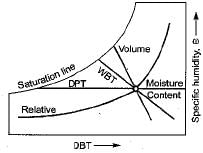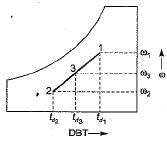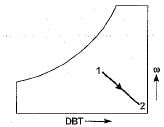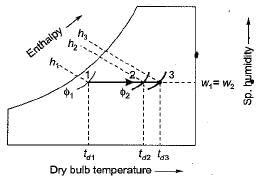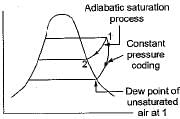Test: Psychrometric Chart & Its Application to Air-Conditioning - 1 - Mechanical Engineering MCQ
10 Questions MCQ Test GATE Mechanical (ME) Mock Test Series 2025 - Test: Psychrometric Chart & Its Application to Air-Conditioning - 1
With reference to following psychrometric chart, match List-I with List-ll and select the correct choice:
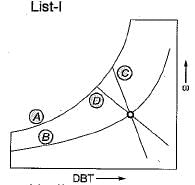
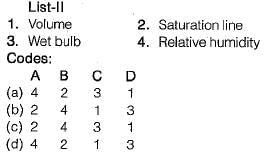


The mixing of two or more streams of moist air in air-conditioning process is
| 1 Crore+ students have signed up on EduRev. Have you? Download the App |
In most of water coolers, the atmospheric air is made to pass through a wet khas-khas or bamboo mat to render a surface cool in summer. Thermodynamically this process may be called
Consider the following statements: In a chemical dehumidification process,
1. DPT decreases
2. WBT decreases
3. DBT decreases
Q. Which of these are correct?
The psychrometric chart in air conditioning determines the
On Psychrometric chart, the constant wet bulb temperature lines coincide with
Heating of air without changing its moisture content takes place on Psychrometric chart along
For cooling and dehumidification of unsaturated moist air, it must be passed over a coil at a temperature
Pure dehumidification can be achieved by passing air through the spray water maintained at
During adiabatic saturation process on unsaturated air, the parameter which remains constant is
|
29 docs|220 tests
|
|
29 docs|220 tests
|


